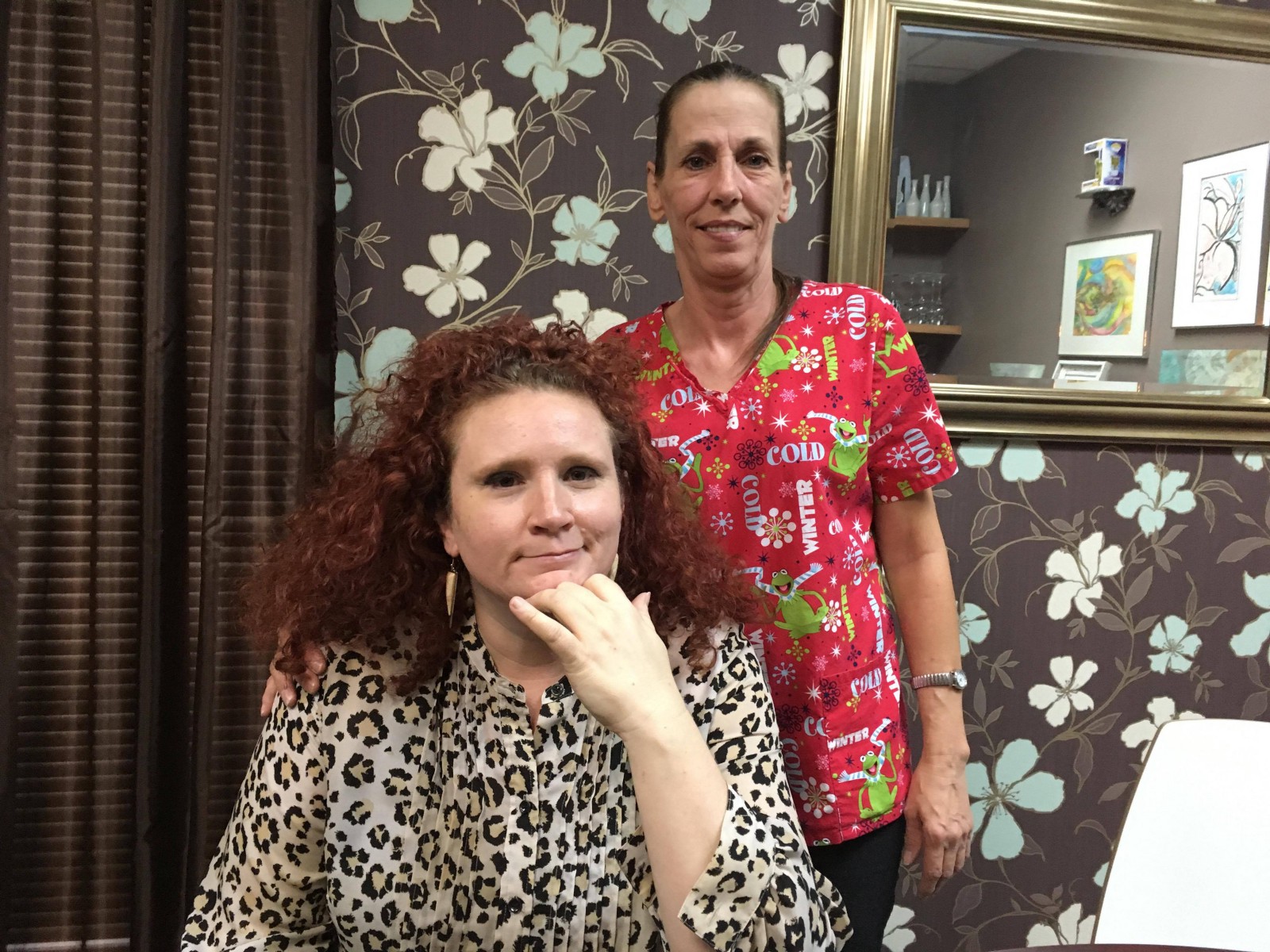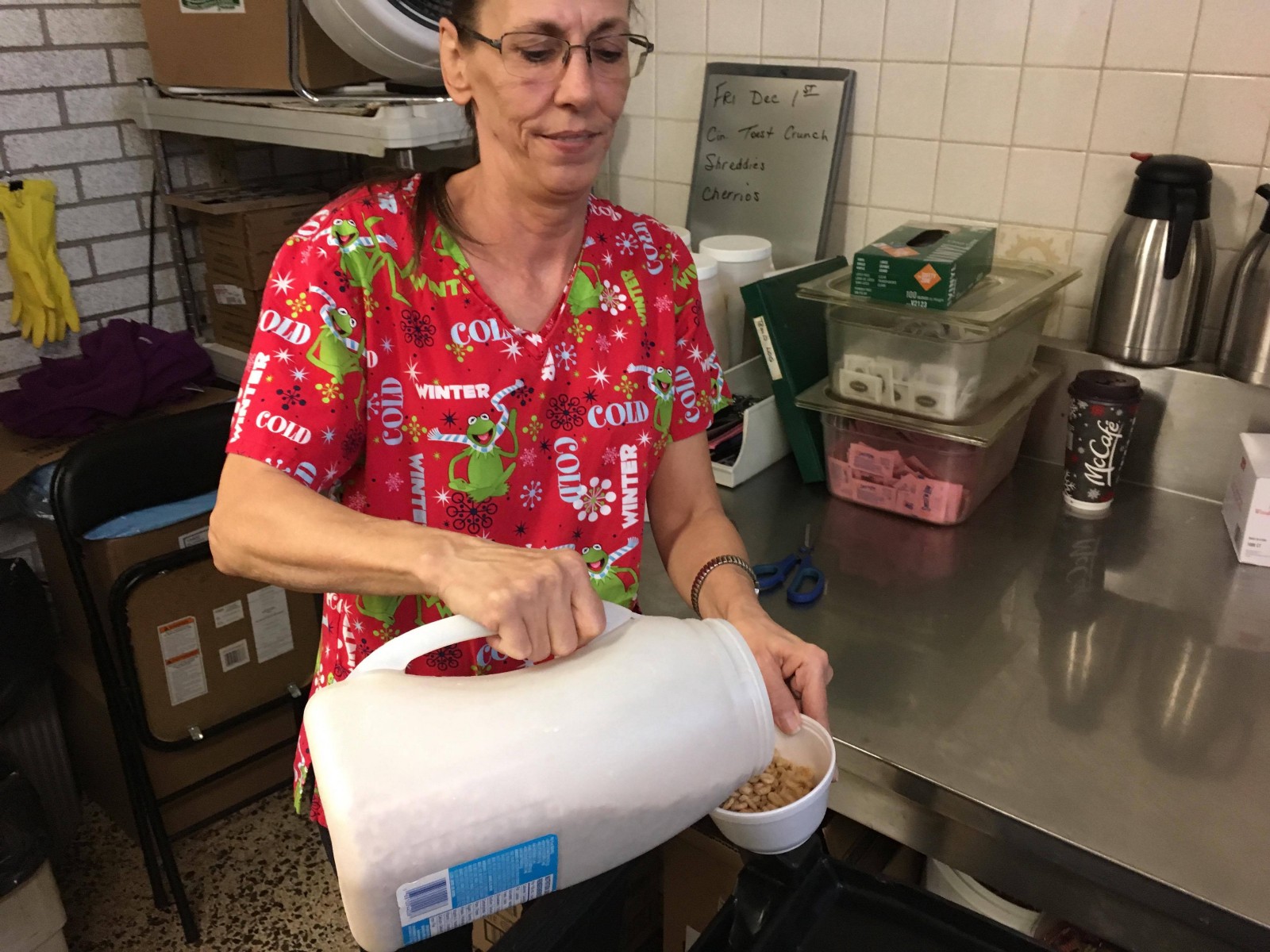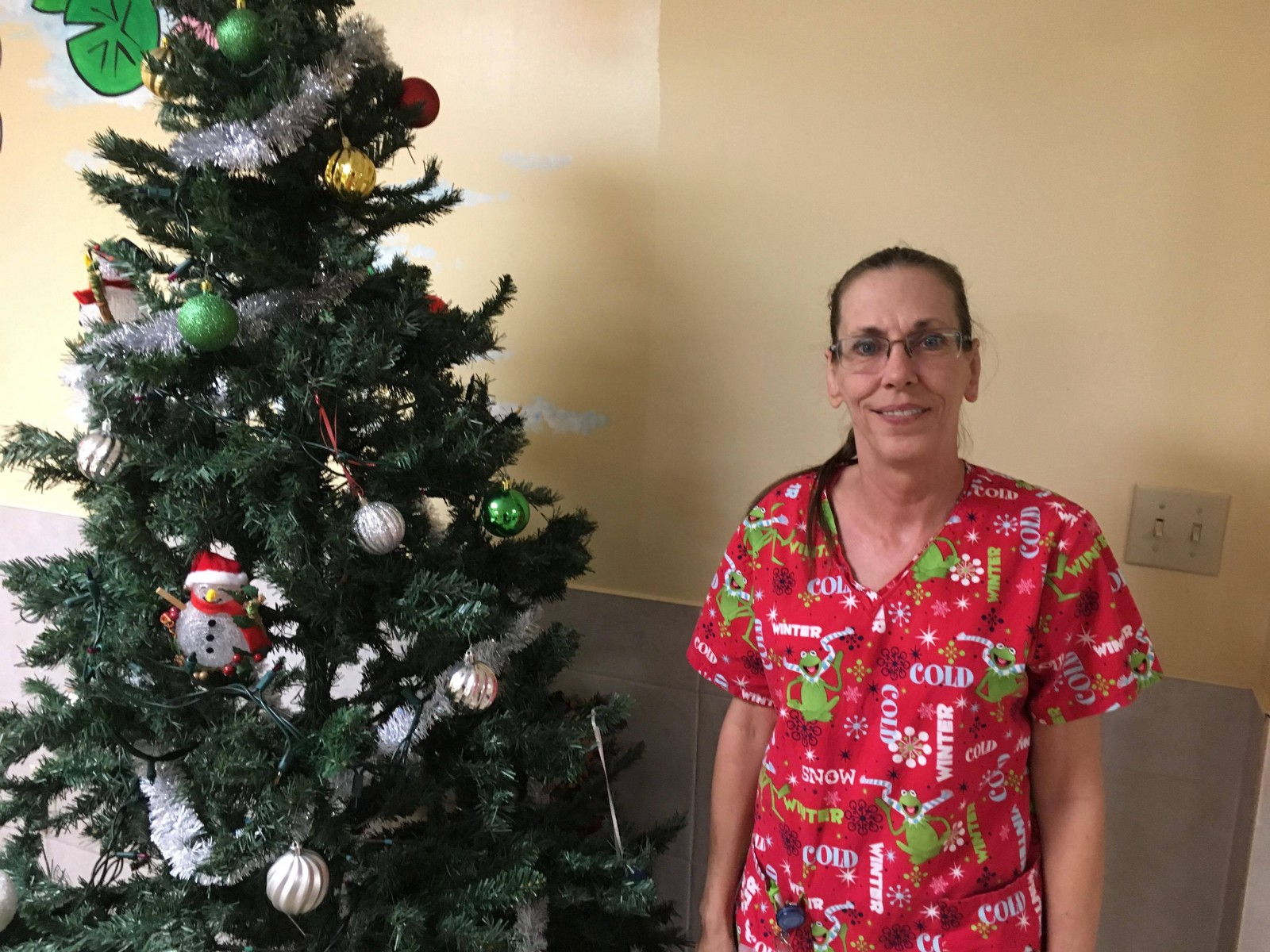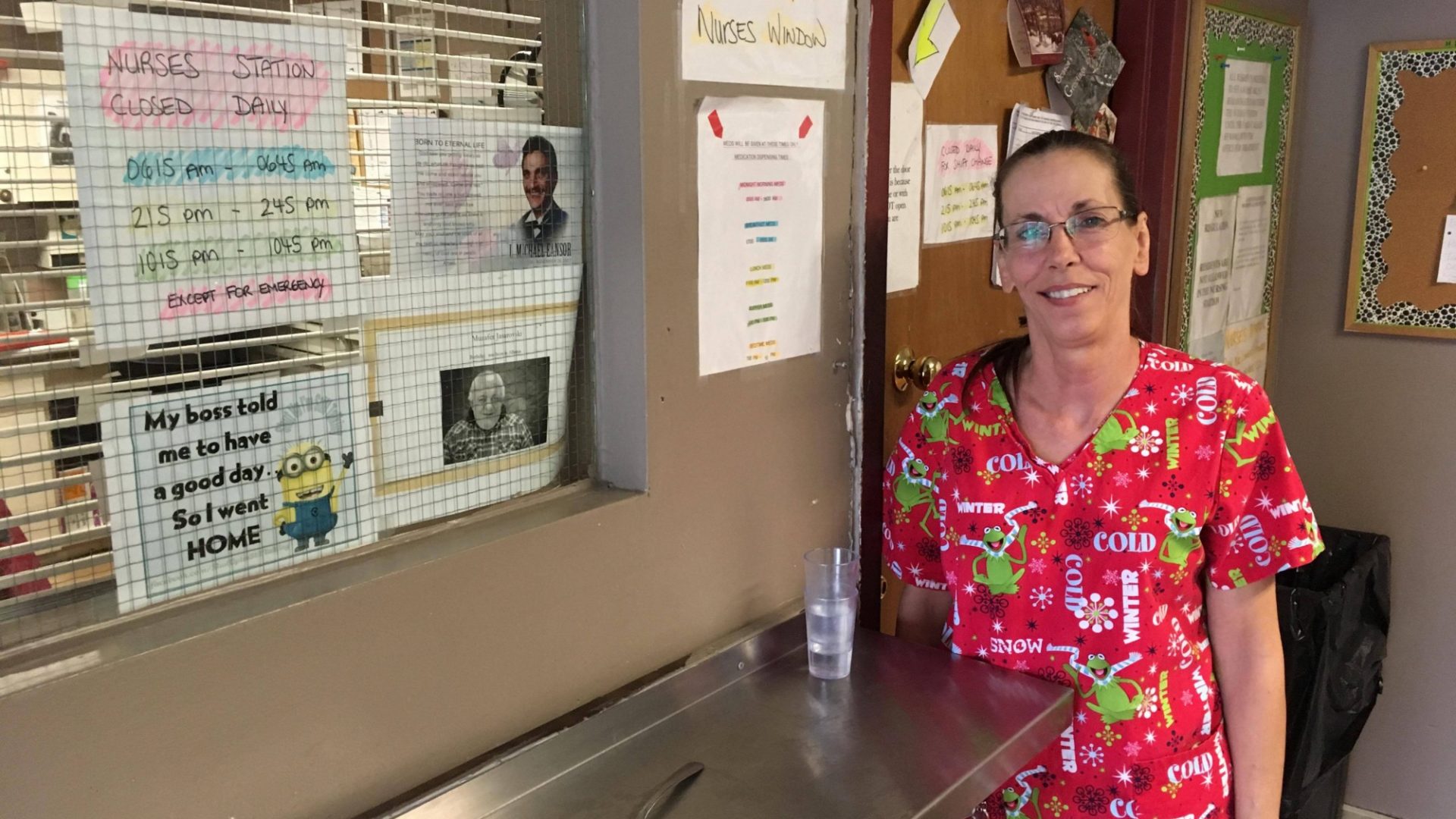Workforce Profiles look at the people behind Workforce WindsorEssex’s 76 In-Demand Jobs. Each week, we talk to a different professional for an inside look into their work.
Located on tree-lined Victoria Avenue, a few blocks away from the downtown Windsor core, is Victoria Manor. It is home and supportive housing for 112 residents. The residents come from diverse backgrounds, ages, and have complex healthcare needs. The communal living home offers independence and support for those with mental and physical disabilities, as well as mental health and addiction services.
On the front-line of that work is Lori. She has been a personal support worker and housekeeper with Victoria Manor for over 30 years. Every day, she cares for the residents and supports the medical and administrative staff.
In Windsor-Essex, there are almost 450 people working as personal support workers and housekeepers. To see more on the education and skills required, check out our Career Profile.
We met up with Lori one afternoon at Victoria Manor along with the Executive Director, Leigh Vachon. We spoke to both of them about the importance of personal support workers and the rising need for them in Windsor-Essex:
What does an average day look like?
Lori: I go in and help with breakfast. I help with the trays and make sure the residents get their breakfast. I wake up a lot of people. Some can’t hear, so as I’m traveling, I will wake them up and make sure they come down for their meals. I serve the dining room their cereal and then clear thedishes. Then, it’s time to go upstairs and start cleaning.
In January, I will be helping the charge nurse, the healthcare aid and office staff. It’s kind of a floater role.
Leigh: There is the classic stuff that PSWs [personal support workers] do like toileting, bathing, assisting, feeding. The hospital system is overcrowded so we’re taking on clients and doing things like trach care, feeding tubes, and feeding bags. It’s kind of beyond the scope of things we had done before, but we’re learning. We learn as we go with every new person who comes in. We have a new skill set that we use for a new person and that becomes part of our skill set.

Lori: No two people are alike, even if they have the same problems. You can always learn something. You get close to a lot of them. You see them more than I used to see my grandparents when I started working here. Some are crotchety, but you take it with a grain of salt and move on. You don’t know what their life entailed.
Leigh: Behaviors can be really difficult when you’re dealing with a mental health population.
One of the absolute best things about Lori is that every day that she comes here, she remembers that the residents are not where she works; she works there they live.
She’s in the business of people. I hear the way that she talks to people and she has never lost sight of the fact that people deserve respect. Regardless of what kind of push back you might get, you handle it.
You started at Victoria Manor out of school — what was it like at first?
Lori: I didn’t know what to expect, honestly. When I first got here, they scared me. They were elderly and you had to walk them and go slow. If they’re hard of hearing and you have to talk loudly, you think you’re yelling at them, but you’re not. At first they were kind of scary, but they were all nice.
It’s always evolving and changing because the clientele changes. Their needs change. There is more of a mental health issue, whether it’s young or old. Now, it’s more recognized and there’s a name to it. Before, I don’t think there was or people stayed at St. Thomas and lived there for a very long time. Now they mainstream them.
Leigh: We got a contract with the City to help support subsidized people with mental health issues. That completely changed the dynamic. After they deinstitutionalized mental health and with the closure of St. Thomas and other places, you saw people being much sicker than we had ever been used to. With the long-term care crunch, you are having people living in homes like ours considerably longer, so their care needs are much higher than we had ever dealt with previously.
We also see people who don’t have family supports. People who are in their 20s, 30s, 40s, 50s with multiple sclerosis or Huntington’s disease, degenerative conditions, where it would be essentially demoralizing to be in long term care. Or they are refusing long term care and they don’t see themselves that way.
Victoria Manor is the place underneath the cracks where we collect people who fall through them.

What advice would you give to someone wanting to become a personal support worker?
Lori: I think you should volunteer first, to see if it’s a fit for you. It’s not a fit for everyone. I went to the Welcome Centre and there was stuff there that I learned, like about the food bank. You have to get out there to see. It’s kind of nice now that in high school, you have to have volunteer hours to graduate.
Leigh: You have to have some emotional fortitude to do that job. You need softness, tenderness and to be loving, but we see a lot of residents who get worse and a lot of people die. You have mentally prepared for what that means to you. For people who you tend to every day and provide care to be gone and watch them decline.
Lori: You have your favourites and you’re sad to see them go. But sometimes, you know they suffered and you don’t want that anymore for them.
What do you wish the general population knew about the people at Victoria Manor?
Lori: Have a little bit more compassion. Just because there is an illness, don’t stigmatize them. Have a little understanding and maybe volunteer your services and your time. Some of them have no family, what are they going to do for the holidays?
Leigh: This is not really a life of people’s choosing. If you’re here, your journey has taken a turn for the worse. People need to understand that some people don’t have control over the decisions being made — even though we try to promote autonomy and independence — and a lot of people have lost their ability for self-care. People are angry at them for that. There is a lot of societal backlash on the way that these programs are being supported, on tax dollars.
Lori: With addiction, people think that there is a choice. Maybe initially, but now it’s become an illness in their lives.

What is the importance of a support worker in this organization?
Leigh: They are the unsung heroes of care. I would get emotional if I talked about it more. All you need to do is go through a gastrointestinal outbreak with these guys and understand how there is not enough money in the world to pay them for what they do. They don’t get enough credit.
I wish more people understood how fortunate they are that these guys decided to do what they do for a living because we would be completely lost. We know that this is a very in-demand job. These guys could have gone to other places and made a lot more money, but once you fall in love with the residents.
Lori: Residents are more like family. You know more about them and they know more about you because you share with them. It’s a two way street.

